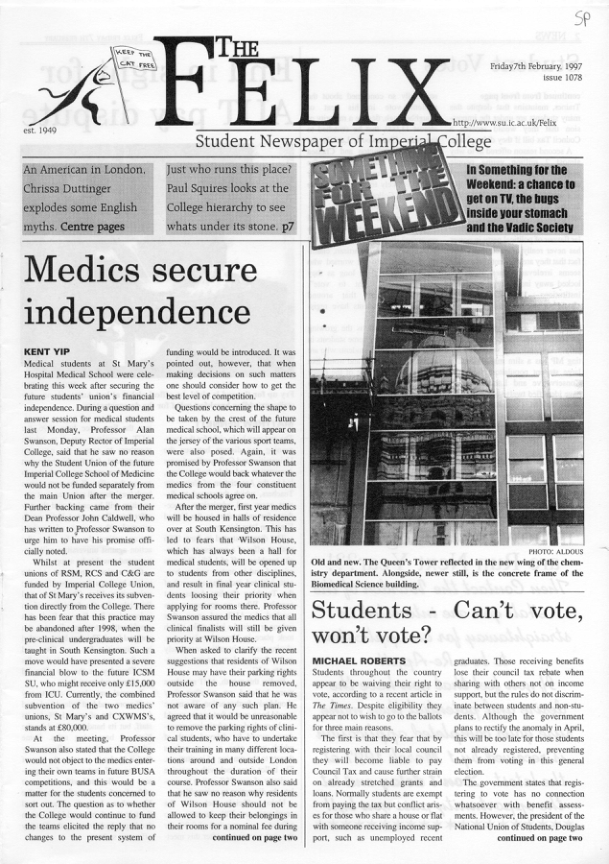Alan Clark, the new MP for K&C?
Thanks to the drunken antics of sitting MP Nicholas Scott, the Kensington and Chelsea Conservative Association have been forced to select a new candidate for the imminent General Election. Faced with a maximum of three months in which to build up support and popularity, this clearly is a tough job for any replacement - although Sir Nicholas’ large majority in 1992 provides a huge safety-net. Consequently, they have selected Alan Clark, a candidate whose very name brings instant recognition amongst the voters of SW7.
Mr Clark, infamous former Cabinet Minister and ardent Thatcherite, retired at the last election, despising the successors to Margearet Thatcher (whom he described as "the most attractive woman in politics"). However, having failed to secure a peerage, and seeing the prosecution case in the Arms to Iraq inquiry (in which he was heavily implicated) collapse, he has been chaffing at the bit to return to the Commons. He unsuccessfully launched a bid to become the official candidate for the Newbury by-election in 1993, and has recently been scouting for possible seats for the forthcoming election - all without success.
Having finally found himself a candidature (and, considering the size of the majority which he defends, a virtually assured place in the next parliament) he promises to keep the spotlight on Kensington & Chelsea. His reputation, as an womaniser and impetuous radical kept him in the glare of publicity throughout the late eighties, and was well founded. His affairs were legendary, including one weekend when he slept with a high-court judge’s wife and his daughter. His wife even admits to his having taken his girlfriend Christina on their honeymoon.
Alan Clark’s career as a minister was no less colourful. Whilst a junior minister at the Department of Employment in 1985, he described the Third World in somewhat un-PC term "Bongo-Bongo land". His time as Minister of Trade, from 1986 - 1989, included the Arms to Iraq dealings with Matrix Churchill, whom he advised to emphasise the general uses of machine tools, rather than their specific uses in Iraq. Even the normally quiet role of Minister of State for Defence took on a whole new life under Clark, thanks largely to his dislike of NATO as a whole, his ardent nationalism, and the outbreak of the Gulf War.
However, Clark’s appointment is also indicative of the current shift to the right in the Tory party, with Clark’s politics far more reactionary than those of the more reserved Scott. Sir Nicholas was a confessed Europhile, lying on his party’s more liberal left-wing, whereas Alan Clark has been described as a "radical reactionary British nationalist", and has spoken out in favour of protectionism and industrial intervention. He comes from a background to match these beliefs: his homes include Saltwood Castle and a chalet in the Alps, he has a passion for fast cars, and to pay his tax bill he was forced to sell one of his Turner’s.
Although he is unlikely to find a place in the next government, his politics vary wildly, and his exploits make him a friend of any tabloid editor, Mr Clark does however have at least one thing in common with Nicky Scott - he already has two convictions for driving offences.





